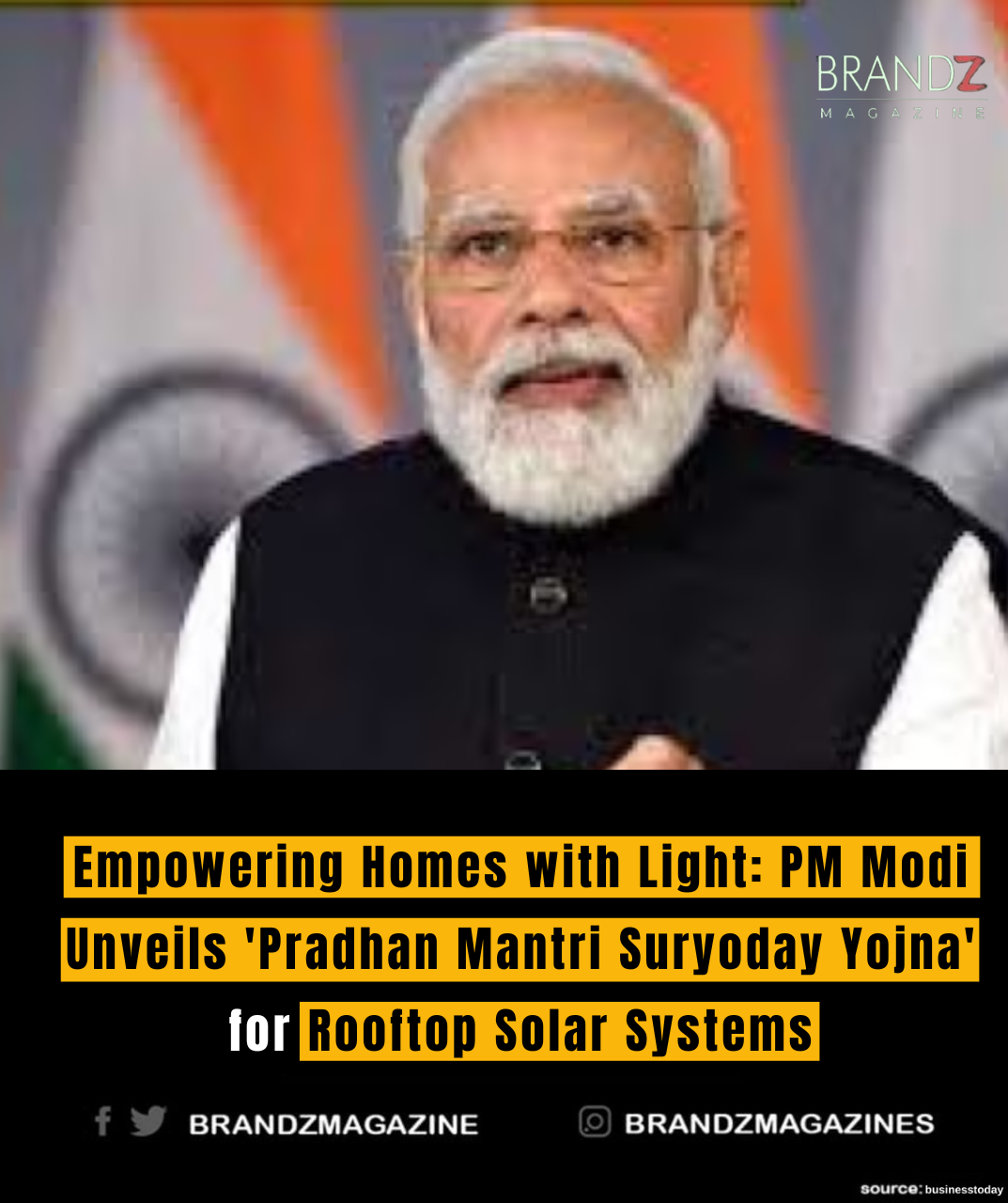
In a momentous decision following the historic Pran Pratishtha of Ayodhya’s Ram Mandir, Prime Minister Narendra Modi announced a groundbreaking initiative aimed at illuminating homes across India. The “Pradhan Mantri Suryoday Yojna” is set to revolutionize energy consumption by facilitating the installation of rooftop solar systems in one crore houses. This strategic move not only underscores the government’s commitment to renewable energy but also aligns with the transformative vision of a sustainable and empowered India.
Ayodhya’s Impact on Sustainable Vision:
Prime Minister Modi, freshly returned from the auspicious occasion of the Ram temple ceremony in Ayodhya, expressed that the event had deepened his commitment to bring positive change to the lives of the people. The decision to launch the ‘Pradhan Mantri Suryoday Yojna’ reflects the influence of this significant spiritual and cultural moment on the Prime Minister’s vision for a cleaner and more sustainable future.
Illuminating One Crore Homes:
The ambitious initiative aims to install rooftop solar systems in one crore homes across the country. By leveraging solar power, the government envisions not just providing electricity but transforming homes into energy-efficient, self-sustainable units. This move aligns with the global shift towards renewable energy sources and underscores India’s commitment to fulfilling its energy needs in an eco-friendly manner.
Sustainable Energy for a Sustainable Future:
The ‘Pradhan Mantri Suryoday Yojna’ emerges as a beacon of sustainable development, emphasizing the role of solar energy in India’s energy matrix. Rooftop solar systems not only reduce dependence on conventional sources but also contribute to lowering carbon footprints, mitigating the impact of climate change. The initiative is poised to revolutionize the energy landscape, fostering a culture of environmental consciousness and responsible energy consumption.
Empowering Rural and Urban Homes:
One of the key features of the scheme is its inclusivity, aiming to bring the benefits of solar power to both rural and urban households. By ensuring the widespread adoption of rooftop solar systems, the government is not only addressing energy disparities but also bridging the gap between urban and rural communities. This move has the potential to uplift the standard of living and contribute to economic development in both settings.
Economic Implications and Job Creation:
The ‘Pradhan Mantri Suryoday Yojna’ is not only a step towards energy sustainability but also holds significant economic implications. The mass adoption of solar technology will spur job creation in the renewable energy sector, fostering skill development and contributing to India’s economic growth. This aligns with the government’s vision of promoting ‘Make in India’ initiatives and creating a self-reliant, resilient workforce.
Public-Private Partnership:
The success of the initiative hinges on collaboration between the government and private sector entities. The encouragement of public-private partnerships ensures the efficient implementation of the ‘Pradhan Mantri Suryoday Yojna,’ leveraging the strengths of both sectors to achieve widespread adoption of rooftop solar systems.
Citizen Participation and Awareness:
As the government embarks on this transformative journey, citizen participation and awareness become crucial components. The success of the ‘Pradhan Mantri Suryoday Yojna’ relies on educating and encouraging citizens to embrace solar energy, fostering a sense of ownership and responsibility towards sustainable living.
Conclusion:
Prime Minister Narendra Modi’s announcement of the ‘Pradhan Mantri Suryoday Yojna’ marks a pivotal moment in India’s journey towards sustainable energy and environmental responsibility. This initiative, born out of the spiritual and cultural significance of Ayodhya’s Ram temple ceremony, reflects a holistic vision for a future where homes are illuminated by the power of the sun. As the nation rallies behind this ambitious project, it sets the stage for a brighter, cleaner, and more sustainable India, symbolizing progress and empowerment for one crore households across the country.

